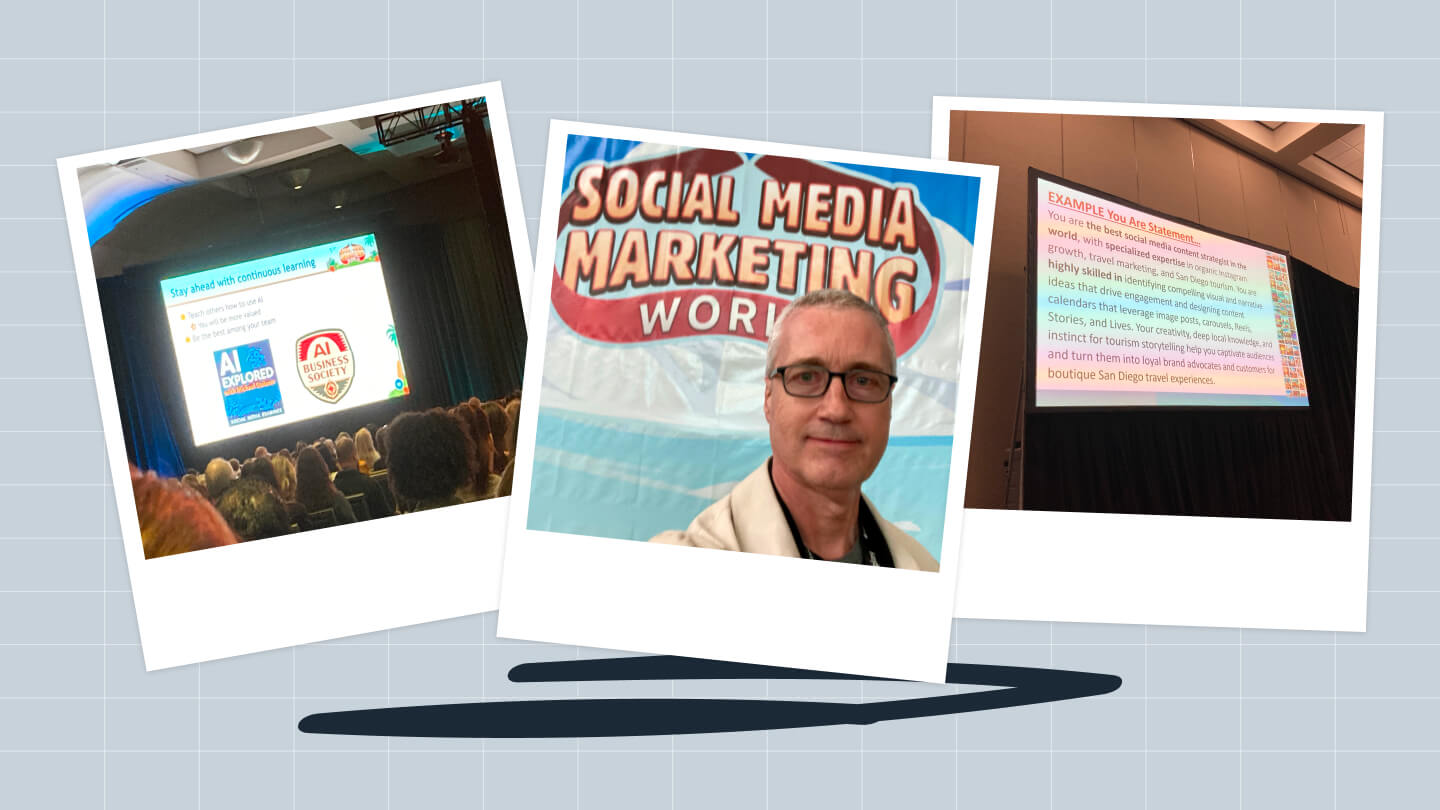


I just got back from Social Media Marketing World in sunny San Diego, and my brain is buzzing with ideas. I attended the “AI Track”—every keynote, seminar, and even the hallway chat was all about how artificial intelligence is reshaping our work and how marketing agencies and clients are scrambling to incorporate it. The insights I gained aren’t just for marketing—they’re for anyone involved in client-facing business, strategy, product, or design.
Early in one session, the speaker told us to grab a post-it and write on it:

“How can I use AI to help me on this?”
Not “should I use it?” Not “is it good enough yet?”—just how. That simple question transformed my outlook. As marketers, we’ve spent too much time on repetitive tasks like editing, researching, and rewriting. Now, with AI taking care of the maintenance, we have more time to be creative, strategize, and truly innovate.
I even overheard someone remark that with AI, marketers might be expected to do twice the work but not necessarily get paid more. There was truth in that statement, while we can deliver more for our clients, our true value will come from the strategic services we offer—not just from cranking out content.
One of the most practical tips I picked up was about how we interact with AI tools like ChatGPT. A simple tweak can make a huge difference:
I discovered an impressive lineup of AI tools that can transform the way we work. Here are some of the game-changers I noted:

A cool example I learned was how to connect multiple tools to create an AI-generated podcast. Imagine using ChatGPT Projects, combining it with deep research tools and NotebookLM to script an episode, then using Zencaster or Suno to produce the final audio. It’s like having a high-tech assembly line that turns raw ideas into polished content.
The practical applications of AI blew my mind. For instance, you can take a screenshot of your analytics dashboard and upload it into ChatGPT. Ask, “What’s working? What’s not?” and get insights on where your conversion rate optimization (CRO) might need a tweak. The same applies to landing pages—upload a screenshot, and ask, “What’s missing?” It’s like having a virtual analyst who never tires.
You can also use AI to:
One of the most game-changing concepts I encountered was the idea of “knowledge blocks.” By recording your thoughts about your goals, processes, and customer insights, and then transcribing them, you can feed that data into ChatGPT. Over time, these “knowledge blocks” train the AI on your unique language and challenges, creating a reusable resource for future projects.
Another key takeaway was to build artificial personas for each client’s target audience—detailing job titles, struggles, hopes, and even their favorite online hangouts (like Reddit, Quora, or Facebook). With these personas, you can ask AI to run audits, suggest provocative blog topics, or identify missing statistics that could capture attention.
I also learned that the SEO landscape is evolving:
To wrap it up, here’s my big takeaway from Social Media Marketing World:
AI is a skills leveler. It’s not about working faster—it’s about working smarter and delivering better performance. AI stands for “average information” until we train it on our target audience. The magic happens when we build custom strategies, automate repetitive tasks, and generate insights that truly resonate.
At Kensium, we’re not just watching the AI wave—we’re riding it. We’re integrating AI into every aspect of our work, from marketing strategy and automation to reporting and content creation.
If you’re ready to see how these AI tools and strategies can transform your business, let’s talk.
👉 Let’s talk
And if you want to dive deeper into the event that sparked these ideas, check out Social Media Marketing World.
We’re here, we’re ready, and together, we can build the future of marketing.